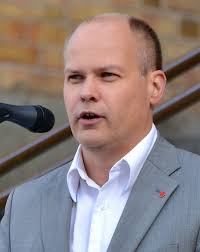Sweden Postpones Contentious Visa Law
Sweden has postponed implementation of a controversial new law that would limit immigrants’ ability to obtain permanent residence visas. The current law allows refugees to receive these visas and to live and work in Sweden indefinitely. The proposed law would have placed a quota on the number of refugees eligible to receive permanent residence visas. The rest would receive temporary resident visas, which limit time in the country to a duration determined at the time the visa is granted, although the visa-holder can apply for extensions. Temporary resident visas do not make holders eligible to work in Sweden, which requires an additional work visa.

Initially, the proposal was set to be implemented May 31. As of March 14, the Swedish parliament will decide on the proposal on June 21. “The law now can only come into force after the vote, that is, during the summer,” wrote Minister of Migration Morgan Johansson in a statement to Svenska Dagbladet, a prominent Swedish newspaper.
Many of Sweden’s non-governmental organizations have criticized the bill. The Children’s Ombudsman, an international organization that aims to protect childrens’ rights, released a statement saying that the proposal violated the United Nations' 1951 Refugee Convention and 1967 Protocol. The protocol calls on nations to treat refugees as they would all other aliens. The quota system on permanent resident visas is not in place for non-refugee aliens seeking residence in Sweden.
Other critics have claimed that the law will severely decrease the possibility of family reunification, and will hinder asylum seekers’ ability to integrate into Swedish society, given that their time there could be limited.
Nevertheless, Johansson believes that this harsh criticism is unlikely to lead to any changes in the proposal before the vote on June 21. “I think in some cases, it’s just an issue of clarifying how to interpret the law. Much [of the criticism] depends on how the international conventions should be interpreted, I assume, and I think we will be able to solve it.”
Note: An abbreviated version of this article appear in print on March 22, 2016.
